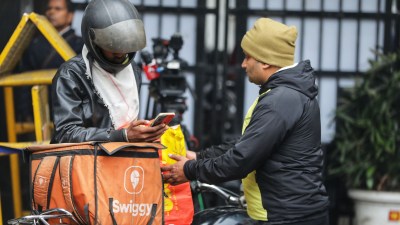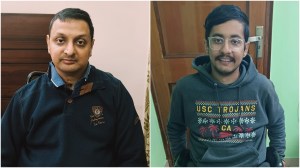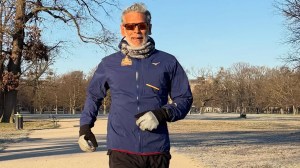Banking on miracles
Long long ago I had an experience which remained stuck in my memory quite inexplicably,quot; I began. quot;But no, I realise it was not ...

Long long ago I had an experience which remained stuck in my memory quite inexplicably,quot; I began. quot;But no, I realise it was not inexplicable at all it was as simple as any Sherlock Holmes explained to Dr Watson. I was one of the guests at an officers conference of one of the major nationalised banks.
Belonging as I did to the opposition, I wasn8217;t the chief guest8217;, that honour was naturally for the minister. The hosts had circulated a printed report of their activities and I had cast a rapid glance at it. And when my turn came, I commented on the fact that the report was an enumeration of the perks won and demanded by their association for them, but had not a word to claim any improvement in the services offered or attempted by them.quot;Since that day about three decades ago,quot; I continued, quot;I have yearned for some evidence to show that our bank men are not just economic men or money-making machines. It has meant a long wait but I am happy that the Bank of Indore has provided me that,quot; I concluded.
Even more significant appeared to be the fact that it was no big political leader who showed this way, it was a plain, unassuming young bank employee, Krishna Kumar Agnihotri, who did it. Also, it did not begin with a big amount which is often contributed by the management of a national newspaper, calculated to set an example for others to follow. It was in 1980 that Sanjivani Kosh was set afloat with a sum of well, let nobody be shocked Rs 10, which presumably meant two persons giving five rupees each. It was launched on the anniversary of bank nationalisation, which it had been fondly claimed would look after the small fry; only Sanjivani did really try to do that in a modest way. The scheme was to provide succour to destitutes in need of medical treatment.
Though Sanjivani Kosh does not accept any contribution from outsiders, it makes no distinction among beneficiaries or illnesses while giving help. It reaches out to victims of diseases related to the heart and kidney and also associates other local trusts when the need is too much for its capacity. Later, it started providing aid for the education of children of poor families also.
During the 20 years of its existence the little enterprise has played a mini-giant8217;s role in the cause of amelioration of suffering. Here is a representative instance. Abdul Aziz was in an advanced stage of cancer and his family had given up all hope when some acquaintance advised his wife to approach Sanjivani. The mother of two kids narrated her tale, interspersed with tears, to Agnihotri when he left his desk after the day8217;s work. He referred her to a young homoeopath, Dinanath Mishra an admirer of Sanjivani who took up the job as a holy mission and gave Mumtaz free medicine, snatching the patient from the jaws of death! With financial help from the Kosh for the children8217;s schooling, the family was virtually resettled.
This record of Sanjivani in 2,378 cases help totalling Rs 9.2 lakh was given till the end of 1999 had made me accept their invitation and I unburdened myself there. The three-decade-old bee in my bonnet was banished. In the meantime I had been bored to death by the twin experiences of a decaying banking service and the endless demands of bank employees. This was an unbelievable whiff of fresh air. Here was Agnihotri an extraordinarily ordinary bank worker with no halo, no group backing and no academic brilliance one who leaves a question pestering you. If he could do this, why couldn8217;t I?
And yes, if I could, why didn8217;t I?
- 01
- 02
- 03
- 04
- 05































